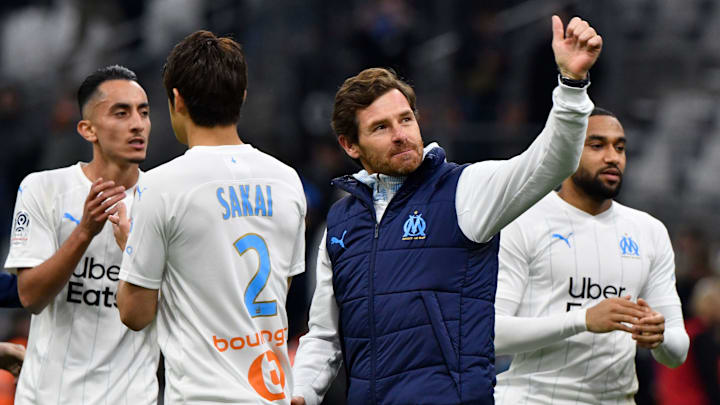André Villas-Boas' Quiet Comeback at Marseille - Season Highlights
By Lee Bushe

In November 2017, shortly after leaving Chinese side Shanghai SIPG, it was announced that André Villas-Boas would partake in the Dakar Rally.
It was a bizarre move, but one that seemed to be linked to his slowly declining managerial career. At one point, he was considered to be one of the most promising managers in football, the ‘next José Mourinho’, but after a failed spell at Chelsea and a semi-successful spell at Tottenham, he went on to manage clubs in Russia and China, moves which seemed to suggest he was more motivated by money as opposed to wanting to restore his reputation.
Managing the likes of Zenit St. Petersburg and Shanghai SIPG would make sense if Villas-Boas was approaching the end of his managerial career, wanting to collect a couple of large paychecks before retirement, but he was only 36 when he took charge of Zenit. It was a backwards step for someone, who, less than a year earlier, had reportedly rejected offers from Real Madrid and Paris Saint-Germain.
Let’s rewind the clock a little bit. Villas-Boas was Mourinho’s assistant coach at Porto, Chelsea and Internazionale respectively before being appointed as manager of Portuguese outfit Académica in October 2009. Académica were bottom of the league with no wins under their belt, but their form significantly improved under Villas-Boas and they eventually finished ten points clear of the relegation places.
These exploits caught the attentions of his former employers Porto. He led the Dragões to the Portuguese title - going unbeaten in the process - won the Taça de Portugal and became the youngest manager to ever win the Europa League - all within the first and only year with the club.
So when Chelsea were looking to replace Carlo Ancelotti in 2011, appointing Villas-Boas made perfect sense. He had worked at Stamford Bridge before, had already established himself as a proven manager and seemed to be following a similar career path to Mourinho, the Blues’ most successful manager.
It didn’t work out. The opportunity appeared to have come too soon for Villas-Boas, who amid poor results and losing the support of the dressing room, was sacked after less than a year. This didn’t dissuade Villas-Boas, however, and he remained in London to take charge of Tottenham a few months later.
He enjoyed success in his first season, missing out on the Champions League places by a single point, but was sacked halfway through 2013-14, having failed to replicate the kind of form Tottenham showed in his initial season. Despite this, Villas-Boas retains the highest percentage of wins for any manager in Spurs’ history.
Still, despite his amazing achievements with Porto and a commendable job at Tottenham, he would go on to manage Zenit and Shanghai SIPG, and his slow descent into footballing obscurity was complete when he decided to compete in the Dakar Rally. Once one of the most promising managers in football, Villas-Boas looked destined to be a managerial journeyman.
Then came Marseille. It was a somewhat surprising move at the time, but one that, on reflection, actually made a lot of sense. Les Phocéens were a solid Europa League side who wanted more and Villas-Boas was a solid Europa League manager who was capable of achieving more. Marseille hadn't qualified for the Champions League in seven years and at the time, it was questioned whether Villas-Boas, who hadn't managed in an elite European league for over half-a-decade, could achieve that.
His reign didn't get off to a great start. Villas-Boas' Marseille suffered the ignominy of defeat to Accrington Stanley in a pre-season friendly, which was followed up by a heavy 4-0 defeat to Rangers - two sides they should have really easily beaten, pre-season friendly or not.
A mixed pre-season was followed up by a disappointing opening day defeat at home to Reims. By matchweek 9, Marseille were 9th in Ligue 1, and another underwhelming season was looking inevitable. Everything changed after a 4-0 loss to Paris Saint-Germain, however, and they started to put together some consistent form.
Les Phocéens won six consecutive games, taking them to 2nd place - and went unbeaten for 14 matches, beating the likes of Lille and Lyon in the process. All of this was achieved with minimal, but smart spending in the transfer window. 29-year-old Dario Benedetto, who had spent the entirety of his career in Latin America, was signed in the summer and has been a consistent scorer for Marseille, bagging 11 goals in 26 league appearances. While, Valentin Rongier, another summer signing, has arguably become their best midfielder since joining from Nantes.
In late April, it was announced that the Ligue 1 season would not be resumed amid the COVID-19 outbreak. Subsequently, it was decided that the league table would be decided by points-per-game. Marseille finished 2nd, with an impressive PPG of 2.0, and secured a Champions League spot that they more than likely would've achieved anyway.
So, after seven years, an unlikely face has finally achieved top-tier European football for Marseille, taking them back to where they belong. In doing so, Villas-Boas has restored a reputation for himself that, in truth, he should have never lost anyway. It's proof that he still possesses the qualities that made him successful at Porto and Tottenham and that some of the criticism he's received over the years have been somewhat unfair.